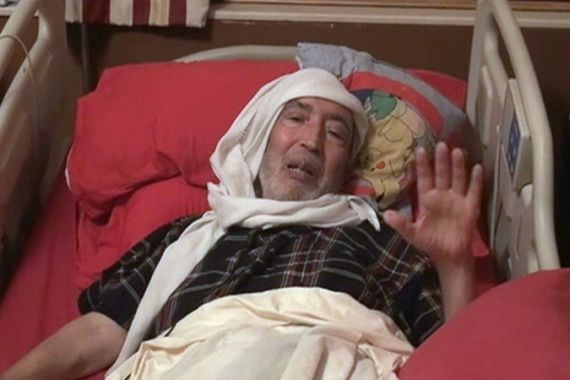Profile: Abdel Basset al-Megrahi
Libyan convicted for his role in the 1988 bombing of Pan Am Flight 103 remains in a critical condition.

Eleven years after being convicted of planting a bomb on Pan Am Flight 103, which exploded over the Scottish town of Lockerbie on December 21, 1988, Abdel Basset al-Megrahi lies in a Libyan hospital in a critical condition.
Megrahi, 57, who was found guilty of killing all 259 people on board the flight along with 11 others on the ground by a special court set up in the Netherlands in 2001, is unconcious and in a critical state, news agencies have reported.
He served eight years of a 27-year-prison sentence but was released on compassionate grounds in 2009 and allowed to return to Libya after doctors said, at the time, that he had terminal cancer and only three months left to live.
During the Libyan revolution in 2011, his brother Abdel Nasser told reporters outside the family home in a residential district of Tripoli that Megrahi was “in and out of a coma”.
Amid the lack of law and order after the revolt which brought armed fighters onto the streets, his family claimed that his medicine had been looted and there was a dearth of available doctors.
The fact that he has survived so long since his release from prison has provoked indignation in Britain and the US, where most of the victims were from.
On the second anniversary of the release of the former Libyan intelligence agent, who has always maintained his innocence, the Scottish government insisted its decision to free him had been vindicated.
But British Prime Minister David Cameron has criticised the release as a “terrible mistake,” and Deputy Prime Minister Nick Clegg said he would like to see him “back in jail behind bars”.
Magrahi has insisted his innocence throughout, claiming he was an airline executive, while prosecutors at his trial described him as an intelligence officer for the Libyan Intelligence Services, which the court accepted.
‘Most Wanted’ list
Megrahi was charged after he was identified by a Maltese shopkeeper as the man who bought clothes that were found in the suitcase carrying the bomb planted on the aircraft.
Scorched clothes found at the site in Scotland had been traced back to a shop in Malta.
It is believed that the bomb, wrapped in the garments, was placed in a suitcase, checked into a flight from Malta’s Luqa airport, and then transferred to the Pan Am flight in London.
In the 1990s, Megrahi was added to the FBI’s “Ten Most Wanted Fugitives” list, with offers of $4m for his arrest.
 |
| Megrahi was sentenced to 27 years in prison [EPA] |
Megrahi was eventually handed over by the Libyan authorities under a UN-brokered deal, where he was held and then tried at the special court in the Netherlands.
At the trial, three judges found him guilty and sentenced him to a minimum of 27 years in jail.
Megrahi was imprisoned in Scotland, spending the first part of his sentence in Barlinnie prison in Glasgow, before being moved in 2005 to Greenock.
Despite the guilty verdict, many believed that those really responsible for the Lockerbie disaster had escaped justice.
An appeal made in 2002 over Megrahi’s conviction was unanimously rejected by a court of five judges.
But a judicial review of his case two years ago raised serious questions about the evidence used to convict him, including the reliability of the evidence given by Tony Gauci, the Maltese shopkeeper.
It was suggested that Gauci may have seen a photo of Megrahi in a magazine days before picking him out of a line-up.
US education
Megrahi was born in Tripoli in 1952. Fluent in Arabic, and with a strong command of English, he studied in the US and spent some time in Britain during the 1970s.
He married in the 1980s, becoming the father of five children who grew up in the Libyan capital.
In 2008, while in detention, Megrahi was diagnosed with advanced prostate cancer, which his lawyer said was incurable.
This led Libya, which spent years lobbying for his release, to push British authorities to grant him compassionate release.
Megrahi dropped his second appeal in August 2009, in a bid to help clear the way for a prison transfer, or compassionate release, in order to allow him to return to his homeland.
But many have criticised the move, saying questions about a possible wrongful conviction will now never be brought to light.